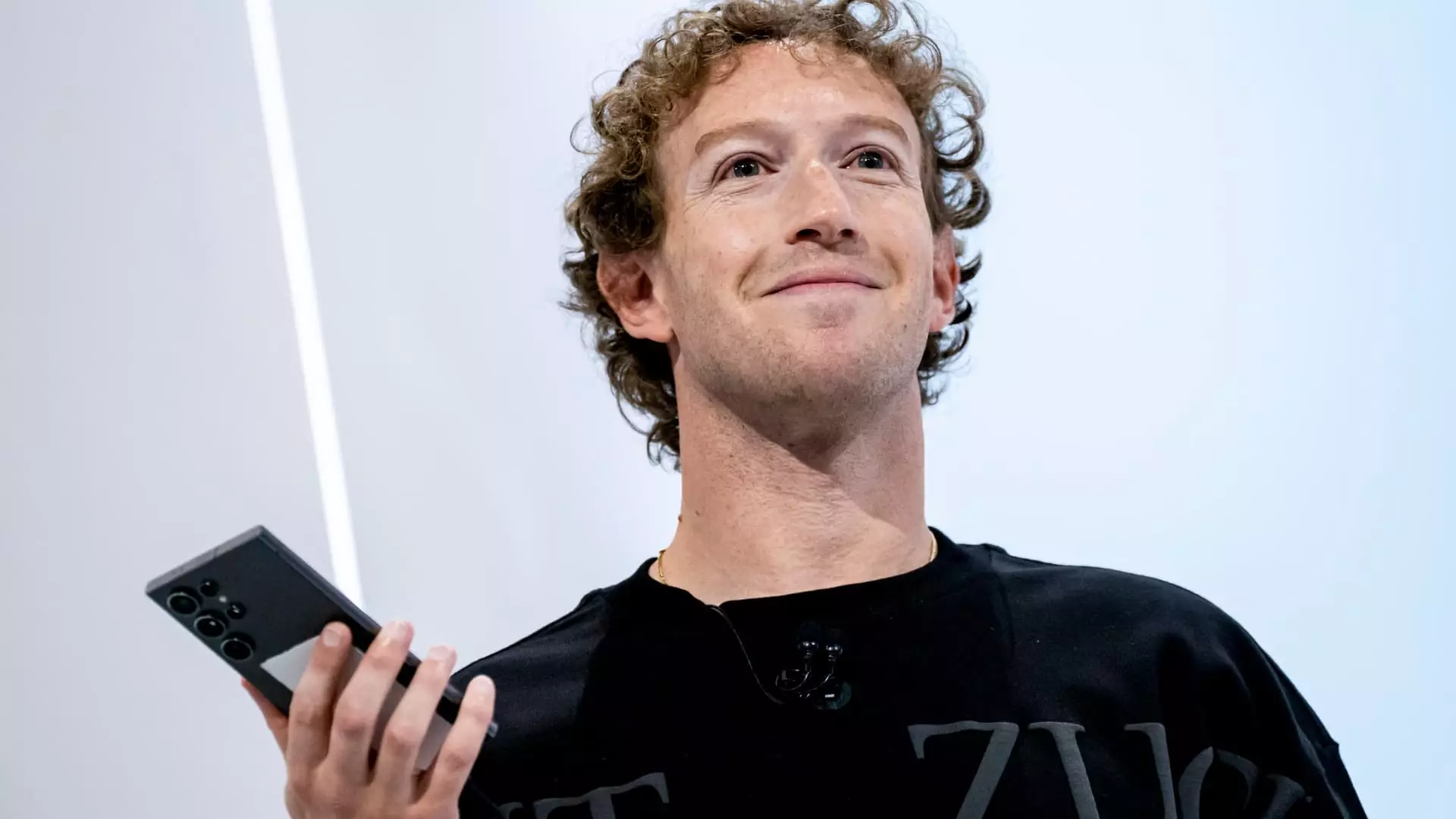In a recent podcast conversation with Joe Rogan, Meta CEO Mark Zuckerberg made explosive claims regarding the Biden administration’s influence on content moderation surrounding Covid-19 vaccines. This interview marked a significant pivot in Zuckerberg’s typically guarded approach to discussing the pressures faced by tech companies in navigating health information. The implications of this conversation reflect a growing tension between governmental influence and corporate responsibility, especially concerning public health communications.
Zuckerberg stated that the Biden administration pressured Meta to remove content discussing the potential side effects of Covid-19 vaccines. He professed a generally pro-vaccine stance, asserting that the benefits of vaccine rollouts significantly outweigh the negatives. Yet, he highlighted a disconcerting reality: while the government aimed to promote vaccination, it also pushed for the silencing of dissenting voices. Zuckerberg’s acknowledgment of this pressure raises critical questions about the boundaries between public health advocacy and censorship. The balance that must be maintained is between preventing misinformation and allowing legitimate discourse regarding vaccine safety.
The CEO’s comments imply that the motivation behind the administration’s actions was to unify public messaging around vaccines. However, this could inadvertently lead to a scenario where valid concerns and discussions about side effects are suppressed. This phenomenon not only disregards the principle of free speech but may also diminish public trust in health authorities and technology companies.
In the wake of these revelations, Meta’s recent transition away from third-party fact-checking towards a community-driven model called “community notes” appears particularly strategic. This shift, especially in the context of burgeoning political changes, aligns with similar moves by other platforms, such as X, formerly Twitter. This transition has sparked concerns about the accuracy and reliability of information circulating on social media platforms. By empowering users to comment on the truthfulness of content, it raises pertinent questions: Will this model enhance transparency, or will it lead to increased misinformation as individual biases come into play?
Critics, including President Biden, have expressed dismay at the idea that a private entity can decide to forego fact-checking entirely. Biden’s comments seem to reflect a broader worry regarding misinformation proliferating without oversight and the implications this holds for democracy. As more individuals turn to social media as their primary news source, the danger of unchecked narratives becomes even more pronounced, particularly in a climate already rife with division and skepticism.
During the interview, Zuckerberg indicated that while Meta faced significant pressure from the government, there were clear guidelines his team sought to uphold. He reflected on previous actions taken by his company in response to perceived governmental demands. Zuckerberg’s admission that they often “censored” valid content out of fear of repercussions adds a layer of complexity to this debate. The concept of “censorship” inevitably raises ethical questions: Where does the line lie between adhering to public health initiatives and succumbing to undue governmental pressures?
This issue highlights broader themes of accountability within tech companies and the struggle to maintain integrity in information dissemination while navigating external pressures. Zuckerberg’s ambiguity regarding specific individuals in the administration who made these requests underscores the opaque relationship between large tech corporations and government bodies—a dynamic that often perpetuates mistrust among the public.
Zuckerberg’s insights did not just focus on the pandemic but also on the broader challenges facing the American tech industry. He expressed concerns about the powers held by international regulators, particularly in Europe, where tech companies have faced over $30 billion in fines. This regulatory landscape complicates the landscape for American tech firms, impeding their ability to compete globally.
The way forward seems precarious. As Zuckerberg indicated optimism about the potential policies under a Trump administration, it reveals a yearning for a more favorable regulatory environment. As these conversations evolve, both tech leaders and policymakers will need to collaborate more effectively to foster a landscape where innovation thrives while maintaining the public’s right to accurate information.
In this ongoing saga of public health communication, corporate responsibility, and governmental influence, the ultimate impact on societal trust remains to be seen. As tech giants grapple with their roles in navigating these challenges, the stakes have never been higher for democracy and informed participation in public discourse.

